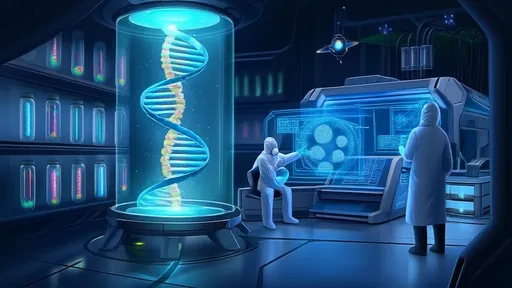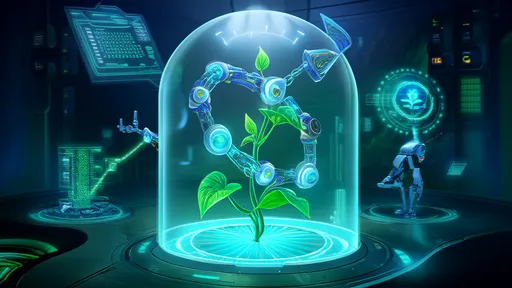The concept of editing reproductive cells to customize the genetic makeup of future generations has long been a subject of both scientific fascination and ethical debate. What was once confined to the realm of science fiction is now inching closer to reality, thanks to advancements in gene-editing technologies like CRISPR-Cas9. But as the science progresses, an unexpected trend is emerging—the gamification of reproductive gene editing, where the process of selecting and modifying embryos is being framed as a customizable, almost playful experience. This shift raises profound questions about the future of human reproduction, ethics, and the commodification of life itself.
The Rise of Designer Offspring
For decades, prospective parents have relied on prenatal screenings and in vitro fertilization (IVF) to increase the chances of having a healthy child. But with the advent of precise gene-editing tools, the scope of what’s possible has expanded dramatically. No longer limited to avoiding genetic disorders, scientists and biotech companies are exploring the possibility of selecting for traits like height, intelligence, eye color, and even athletic ability. Some startups have begun marketing these services with sleek, user-friendly interfaces that make the process feel more like a video game character customization screen than a medical procedure.
These platforms allow users to "design" their ideal child by selecting from a menu of genetic options, complete with visual simulations of how certain traits might manifest. The language used is often playful, with terms like "upgrade" and "premium traits" reinforcing the idea that reproduction is just another domain ripe for optimization. Critics argue that this approach trivializes the gravity of altering human DNA, reducing profound biological and ethical decisions to the level of a consumer choice.
The Ethical Minefield
While the technology promises unprecedented control over human genetics, it also opens a Pandora’s box of ethical dilemmas. Who gets to decide which traits are desirable? Could this lead to a new form of eugenics, where only those who can afford genetic enhancements pass on "superior" traits? The gamification of reproductive editing risks normalizing these choices, making them seem harmless or even fun, when in reality, they could exacerbate social inequalities and redefine what it means to be human.
Another concern is the lack of long-term data on the effects of germline editing—changes made to embryos that will be inherited by future generations. Unlike editing somatic cells (which affect only the individual), germline modifications are permanent and could have unforeseen consequences down the line. Presenting these options in a game-like format may downplay the risks, leading people to make decisions without fully understanding the implications.
The Role of Regulation and Public Perception
Governments and regulatory bodies are struggling to keep pace with the rapid advancements in gene editing. Some countries have outright banned germline editing, while others have adopted a more permissive stance, allowing research under strict guidelines. The gamification of reproductive genetics adds another layer of complexity, as it blurs the line between medical treatment and consumer entertainment. Should these platforms be regulated like medical devices, or are they closer to lifestyle apps?
Public perception will play a crucial role in shaping the future of this technology. If reproductive gene editing is framed as a harmless, even enjoyable activity, it could gain widespread acceptance before the ethical and biological ramifications are fully understood. On the other hand, if society recoils at the idea of "designer babies," we may see a backlash that stifles innovation in this field altogether.
A Future of Genetic Customization?
As the science continues to evolve, so too will the ways in which it is marketed and consumed. The gamification of reproductive gene editing may be just the beginning—a way to make a complex and controversial technology more palatable to the masses. But whether this approach will lead to a future of enhanced, disease-free generations or a dystopian world of genetic haves and have-nots remains to be seen.
What is clear is that the conversation around this technology must extend beyond labs and boardrooms. The public needs to engage in meaningful dialogue about the moral, social, and scientific implications of editing the very blueprint of human life. Because once we start playing the game of genetic customization, there may be no going back.

By /Jul 3, 2025

By /Jul 3, 2025

By /Jul 3, 2025

By /Jul 3, 2025

By /Jul 3, 2025

By /Jul 3, 2025

By /Jul 3, 2025

By /Jul 3, 2025

By /Jul 3, 2025

By /Jul 3, 2025

By /Jul 3, 2025

By /Jul 3, 2025

By /Jul 3, 2025

By /Jul 3, 2025

By /Jul 3, 2025

By /Jul 3, 2025

By /Jul 3, 2025

By /Jul 3, 2025